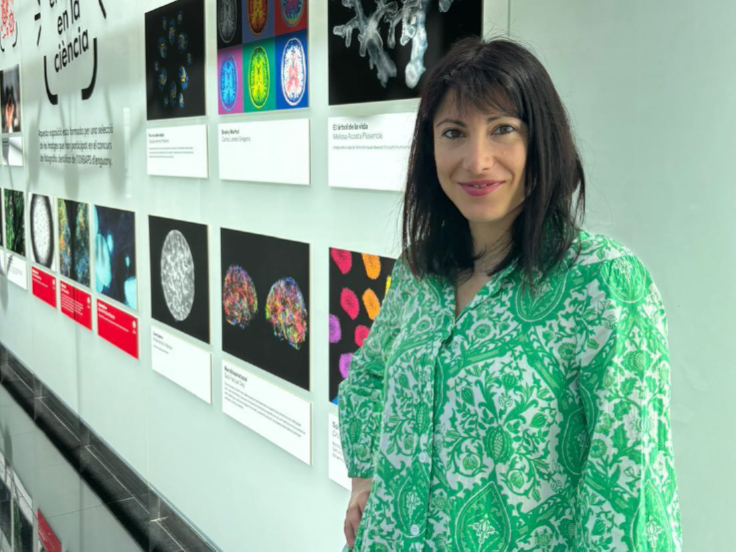Menu

Researchers at EF CLIF, Hospital Clínic de Barcelona-Institut d’Investigacions Biomèdiques August Pi i Sunyer (IDIBAPS) (Spain); Barcelona Biomedical Research Institute (Spain); Massachusetts General Hospital and Harvard Medical School (MA, USA); and RIKEN Center for Integrative Medicine Sciences and Keio University (Japan), reported improved hepatocyte mitochondrial fusion/fission balance in fat-1 mice compared to wild type animals. Changes in shape are known to influence the mitochondrial energy output and production of reactive oxygen species, suggesting that the omega-3 PUFA-enriched tissue microenvironment may contribute to a superior mitochondrial metabolic capacity and function. Indeed, mitochondria in fat-1 mice showed higher oxygen consumption rate, increased fatty acid β-oxidation, and prioritization of intermediates of the tricarboxylic acid cycle (i.e., succinate and citrate) to produce high energy electron carriers to supply to the mitochondrial electron transport chain.
Liver tissue isolated from fat-1 mice presented a distinct composition of phospholipids containing decosahexaenoic acid (DHA) – an omega-3 PUFA precursor of bioactive lipid autacoids that promotes resolution of inflammation protecting the tissue againts injury. In fat-1 mice, researchers found increased levels of the lipid autacoids resolvin D1 and 7(R)-maresin 1 which had the ability to rescue mitochondrial function in wild type hepatocytes treated with the pro-inflammatory cytokine tumor necrosis factor alpha (TNFα).
Interestingly, fat-1 mice on high-fat diet were resistant to induced hepatic steatosis and showed reduced liver injury compared with wild type mice under the same diet, with fat-1 mice retaining higher respiration capacity (i.e., oxygen consumption rate) and mitochondrial fatty acid β-oxidation than wild type animals. Moreover, fat-1 mice fed on a choline-deficient, L-amino acid-defined high-fat fibrogenic diet appeared to limit the extent of liver fibrosis providing further evidence for omega-3 PUFAs in preventing mitochondrial dysfunction induced by obesogenic or fibrogenic insults.
“Lipids, especially polyunsaturated fatty acids, not only play a role as cellular structural components and energy source but also as precursors of biologically active lipid derivatives. In the case of omega-6 polyunsaturated fatty acids the lipid derivatives (for example prostaglandins) are pro-inflammatory and immunosuppressive. In contrast, for omega-3 polyunsaturated fatty acids, the lipid derivatives are anti-inflammatory and promote the resolution of inflammation. This is the main reason why replacing omega-6s by omega-3s provides health benefits”, said co-corresponding author Joan Clària, Principal Investigator at EF CLIF and Hospital Clínic de Barcelona-IDIBAPS, Spain.
“Today it is well known that the omega-3s exert beneficial effects on inflammation and immune system, but we are still wondering which are the undelying cellular and molecular mechanisms. Thanks to this study, we come closer to understanding how these lipids have a more profound effect at the cellular energy level”, said first author Cristina López-Vicario, potsdoctoral reseasercher at Hospital Clínic-IDIBAPS, Spain.
“The results of our investigation lead us to think that not only we could prevent having an unhealthy liver with a balanced diet rich in highly anti-inflammatory omega-3 fatty acids, but fibrotic and injured liver can be reverted by increasing the intake of these essential fatty acids”, added López-Vicario.
“We are currently working on a project exploring the benefits of omega-3s in more advanced stages of liver disease. Particularly, we are working with fat-1 mice induced to cirrhosis in which we precipitate acute-on-chronic liver failure by a model of polymicrobial peritonitis. Our ultimate goal is to explore the importace of maintaining an adequate lipid nutritional support with essential fatty acids, especially of the omega-3 family, in critically ill patients”, concluded Clària.
This study was sponsored by the European Foundation for the Study of Chronic Failure (EF CLIF).
Other authors on the study are David Sebastián, Mireia Casulleras, Marta Duran-Güell, Roger Flores-Costa, Ferran Aguilar, Juan José Lozano, Ingrid W. Zhang, Esther Titos, Jing X. Kang, Antonio Zorzano, and Makoto Arita.
López-Vicario, C.; Sebastián, D.; Casulleras, M.; Duran-Güell, M.; Flores-Costa, R.; Aguilar, F.; Lozano, J. J.; Zhang, I. W.; Titos, E.; Kang, J. X.; Zorzano, A.; Arita, M.; Clària, J. Essential lipid autacoids rewire mitochondrial energy efficiency in metabolic dysfunction-associated fatty liver disease. Hepatology 2023, 77 (4): 1303–1318. DOI: 10.1002/hep.32647
European Foundation for the Study of
Chronic Liver Failure
Travessera de Gràcia 11, 7th floor
08021 Barcelona, Spain
© European Foundation for the Study of Chronic Liver Failure 2024
 We use cookies on our website to give you the most relevant experience by remembering your preferences and repeat visits. By clicking “Accept”, you consent to the use of ALL the cookies. However you may visit Cookie Settings to provide a controlled consent.
We use cookies on our website to give you the most relevant experience by remembering your preferences and repeat visits. By clicking “Accept”, you consent to the use of ALL the cookies. However you may visit Cookie Settings to provide a controlled consent.| Cookie | Duration | Description |
|---|---|---|
| cookielawinfo-checkbox-analytics | 11 months | This cookie is set by GDPR Cookie Consent plugin. The cookie is used to store the user consent for the cookies in the category "Analytics". |
| cookielawinfo-checkbox-functional | 11 months | The cookie is set by GDPR cookie consent to record the user consent for the cookies in the category "Functional". |
| cookielawinfo-checkbox-necessary | 11 months | This cookie is set by GDPR Cookie Consent plugin. The cookies is used to store the user consent for the cookies in the category "Necessary". |
| cookielawinfo-checkbox-others | 11 months | This cookie is set by GDPR Cookie Consent plugin. The cookie is used to store the user consent for the cookies in the category "Other. |
| cookielawinfo-checkbox-performance | 11 months | This cookie is set by GDPR Cookie Consent plugin. The cookie is used to store the user consent for the cookies in the category "Performance". |
| viewed_cookie_policy | 11 months | The cookie is set by the GDPR Cookie Consent plugin and is used to store whether or not user has consented to the use of cookies. It does not store any personal data. |